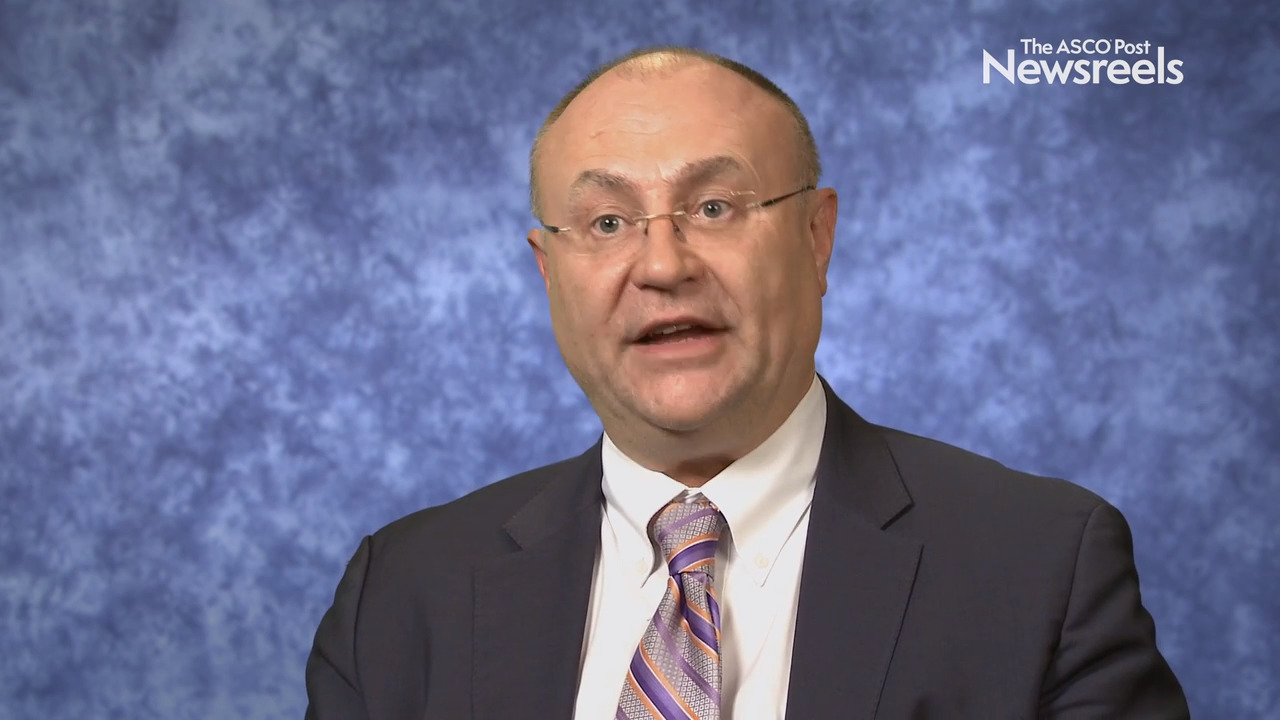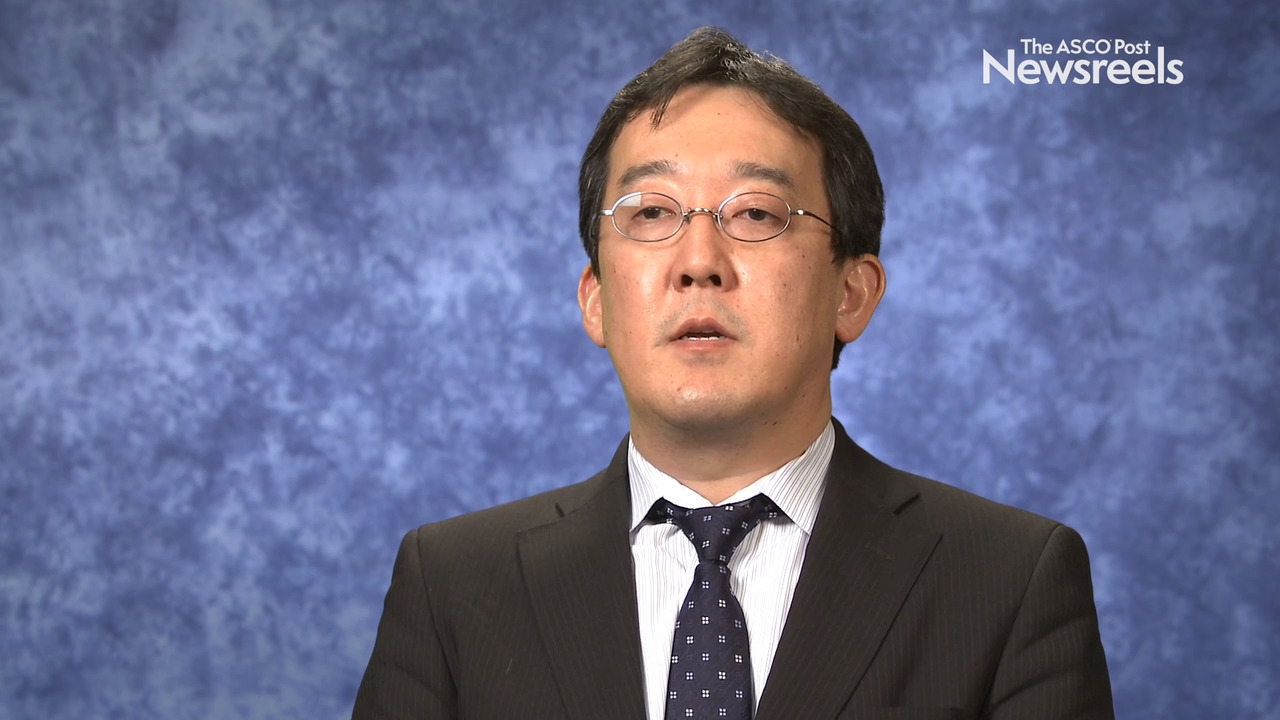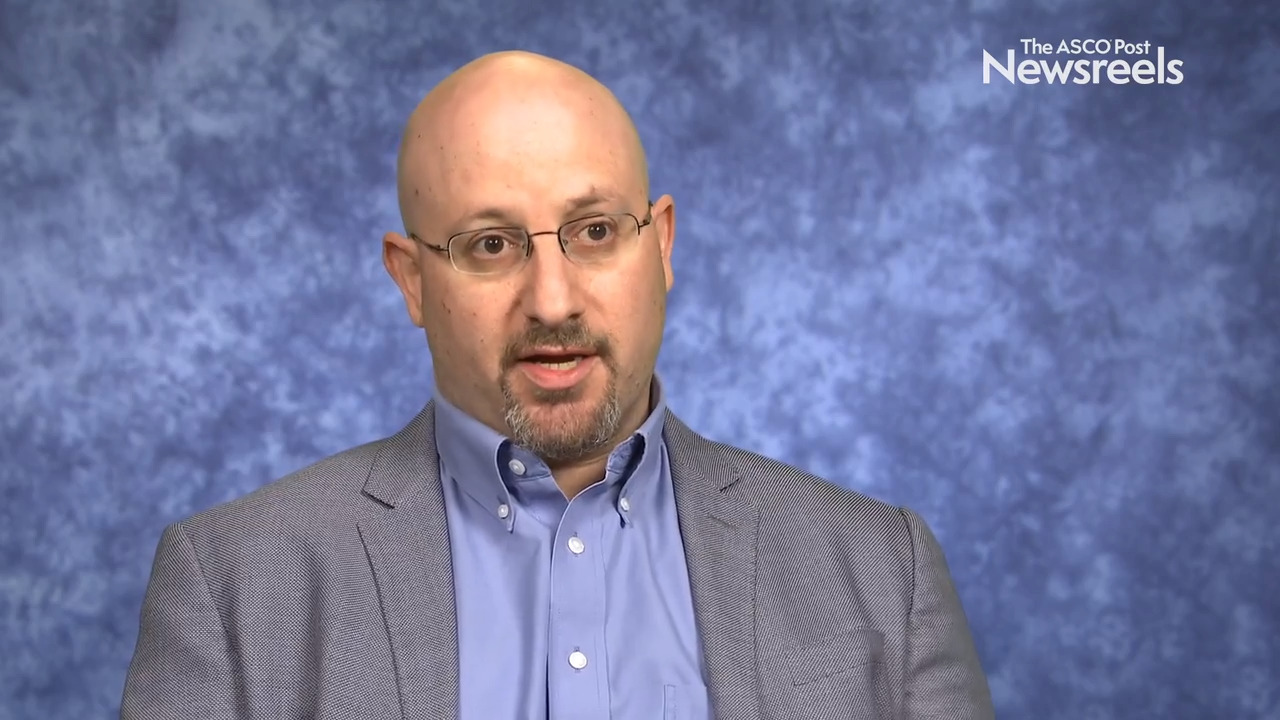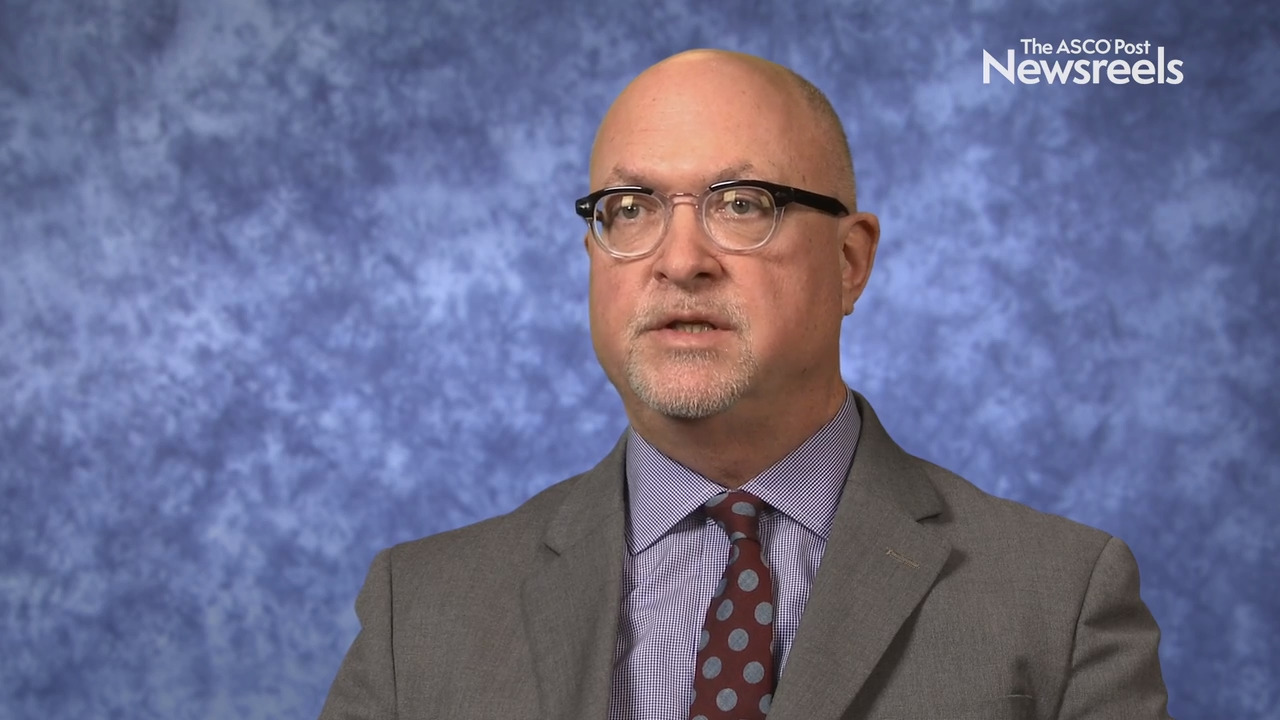Francesca Battaglin, MD, on Colorectal Cancer: Using Genetic Variants to Predict Treatment Efficacy
2019 Gastrointestinal Cancers Symposium
Francesca Battaglin, MD, of the University of Southern California Norris Comprehensive Cancer Center, discusses phase III study data on genetic variants used to predict the efficacy of cetuximab in patients with metastatic colorectal cancer (Abstract 564).
Heinz-Josef Lenz, MD, of the University of Southern California Norris Comprehensive Cancer Center, discusses the efficacy and safety of dabrafenib and trametinib in patients with BRAF V600E–mutated biliary tract cancer (Abstract 187).
Takashi Kojima, MD, of the National Cancer Center Hospital East, discusses phase III study findings on pembrolizumab vs chemotherapy as second-line treatment for advanced esophageal cancer (Abstract 2).
Andrew X. Zhu, MD, PhD, of the Massachusetts General Hospital Cancer Center, discusses phase II/III study findings on neoadjuvant chemotherapy with gemcitabine and S-1 vs upfront surgery for resectable pancreatic cancer (Abstract 189).
Jonathan R. Strosberg, MD, of the Moffitt Cancer Center, discusses phase II study findings on pembrolizumab as a treatment for advanced neuroendocrine tumors (Abstract 190).
David H. Ilson, MD, PhD, of Memorial Sloan Kettering Cancer Center, discusses findings on the efficacy and safety of third-line trifluridine/tipiracil in patients with metastatic gastric cancer with or without prior gastrectomy (Abstract 3).





